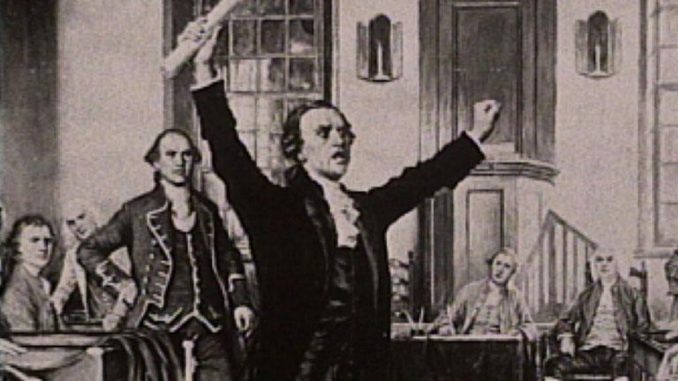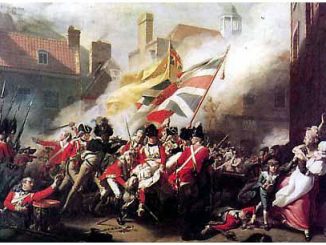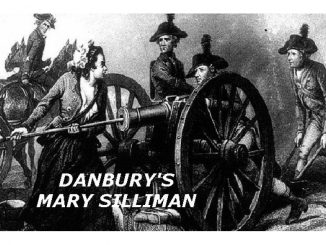
Most colonists quietly accepted British rule until Parliament’s enactment of the Tea Act in 1773, which granted the East India Company a monopoly on the American tea trade. Viewed as another example of taxation without representation, militant Patriots in Massachusetts organized the “Boston Tea Party,” which saw British tea valued at some 10,000 pounds dumped into Boston harbor. Parliament, outraged by the Boston Tea Party and other blatant destruction of British property, enacted the Coercive Acts, also known as the Intolerable Acts, in the following year. The Coercive Acts closed Boston to merchant shipping, established formal British military rule in Massachusetts, made British officials immune to criminal prosecution in America, and required colonists to quarter British troops. The colonists subsequently called the first Continental Congress to consider a united American resistance to the British.
With the other colonies watching intently, Massachusetts led the resistance to the British, forming a shadow revolutionary government and establishing militias to resist the increasing British military presence across the colony. In April 1775, Thomas Gage, the British governor of Massachusetts, ordered British troops to march to Concord, Massachusetts, where a Patriot arsenal was known to be located. On April 19, 1775, the British regulars encountered a group of American militiamen at Lexington, and the first volleys of the American Revolutionary War were fired.







Be the first to comment